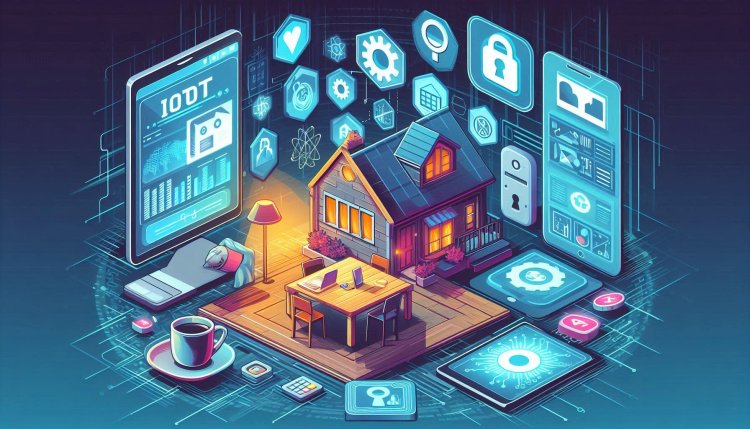Privacy concerns in IoT data collection
"Discover the impact of IoT data collection on privacy, security, and personal information. Learn how to protect your data in the digital age."

Privacy concerns in IoT data collection
The Internet of Things (IoT) has revolutionized the way we interact with technology by connecting everyday objects to the internet. While IoT devices offer convenience and efficiency, they also raise significant privacy concerns due to the vast amount of personal data they collect and process.
1. Data collection and storage
IoT devices collect a wide range of data, including personal information such as location, health data, and behavior patterns. This data is often stored in the cloud, where it can be vulnerable to security breaches and unauthorized access. Users may not be aware of the types of data being collected or how it is being used, leading to concerns about privacy and data security.
2. Lack of transparency
One of the major privacy concerns in IoT data collection is the lack of transparency around data practices. Many IoT devices do not provide clear information about what data is being collected, how it is being used, and who has access to it. This lack of transparency makes it difficult for users to make informed decisions about sharing their personal information with IoT devices.
3. Inadequate security measures
IoT devices are often vulnerable to security breaches due to inadequate security measures. Many devices lack basic security features such as encryption and authentication, making it easy for hackers to access and exploit the data collected by IoT devices. This puts users' personal information at risk and raises concerns about data privacy and security.
4. Data sharing and third-party access
Another privacy concern in IoT data collection is the sharing of data with third parties. Many IoT devices collect data that is shared with third-party companies for marketing or other purposes. Users may not be aware of this data sharing and may not have control over how their data is used by third parties. This raises concerns about privacy and the potential for data misuse.
5. User consent and control
Privacy advocates argue that users should have more control over the data collected by IoT devices and how it is used. Many IoT devices collect data without explicit user consent, leading to concerns about data privacy and user autonomy. Giving users more control over their data can help address privacy concerns and build trust in IoT technology.
6. Data anonymization and de-identification
One way to address privacy concerns in IoT data collection is through data anonymization and de-identification. By removing personally identifiable information from collected data, companies can reduce the risk of data breaches and protect user privacy. However, it is important to ensure that the data remains useful for its intended purposes even after anonymization.
7. Regulatory challenges
Regulation of IoT data collection poses significant challenges due to the global nature of IoT technology and the rapid pace of innovation. Different countries have varying privacy laws and regulations, making it difficult to establish consistent standards for data privacy in IoT. Policymakers face the challenge of balancing innovation and privacy protection in the rapidly evolving IoT landscape.
8. Data retention and deletion
Another privacy concern in IoT data collection is the retention and deletion of data. IoT devices often store data indefinitely, raising concerns about data security and user privacy. Users should have the right to request the deletion of their data and know how long their data will be retained by IoT devices to protect their privacy.
9. Data breaches and cyber attacks
Data breaches and cyber attacks are significant privacy concerns in IoT data collection. Hackers can exploit vulnerabilities in IoT devices to access sensitive personal information, leading to identity theft, financial fraud, and other privacy risks. Companies must implement robust security measures to protect user data and prevent data breaches in IoT systems.
10. Public awareness and education
Public awareness and education are essential for addressing privacy concerns in IoT data collection. Users should be informed about the risks associated with IoT devices and how to protect their privacy and security. Companies should also be transparent about their data practices and provide clear information to users about data collection and usage.
Conclusion
Privacy concerns in IoT data collection are significant and require careful consideration by policymakers, companies, and users. By addressing issues such as data transparency, security measures, user consent, and data retention, we can build a more privacy-conscious IoT ecosystem that respects user privacy and protects personal data.
What's Your Reaction?

















